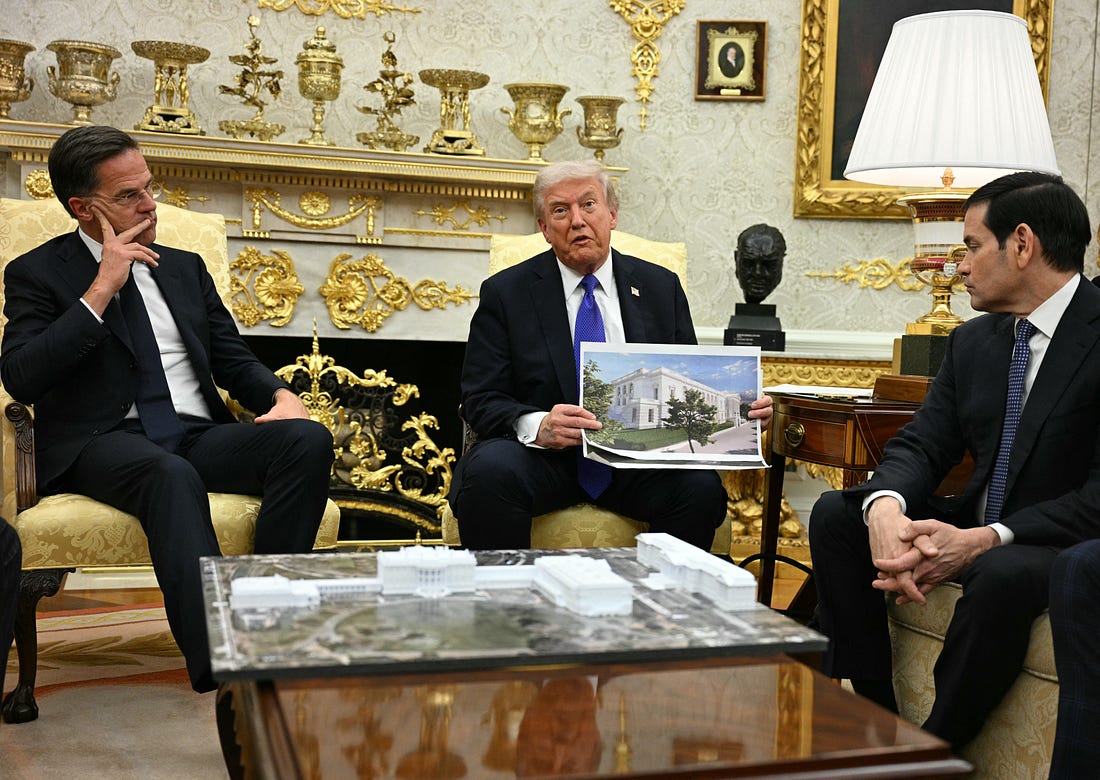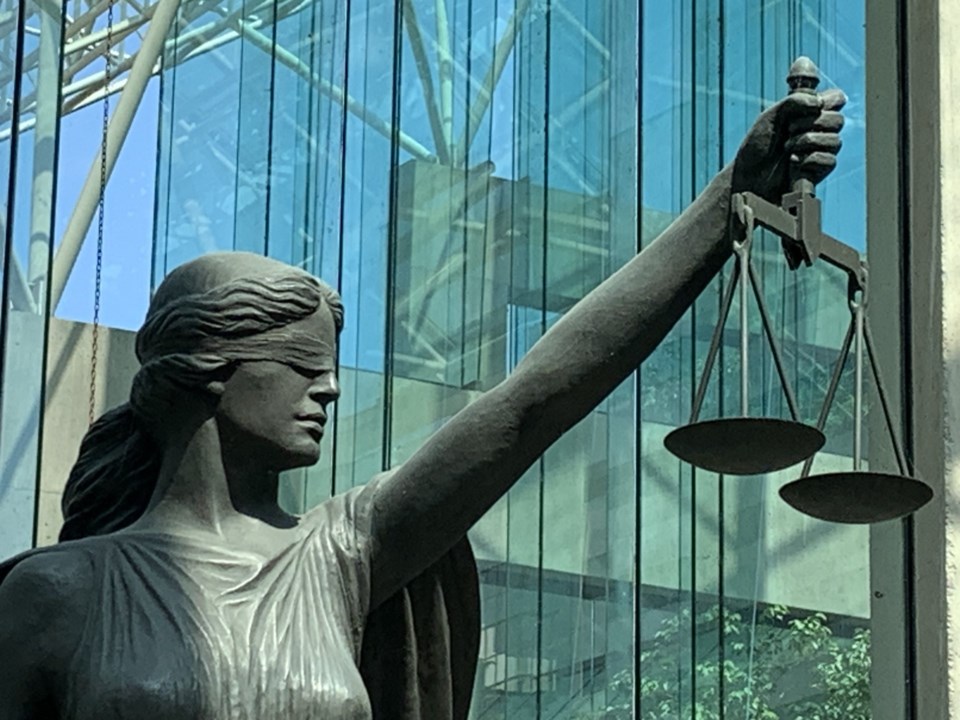by McKenzie Funk
ProPublica is a nonprofit newsroom that investigates abuses of power. Sign up for Dispatches, a newsletter that spotlights wrongdoing around the country, to receive our stories in your inbox every week.
The for-profit prison company GEO Group has surged in value under President Donald Trump. Investors are betting big on immigration detention. Its stock price doubled after Election Day.
But despite its soaring fortunes, the $4 billion company continues to resist having to pay detainees more than $1 a day for cleaning facilities where the government has forced them to live.
At the 1,575-bed detention center GEO runs for Immigration and Customs Enforcement in Tacoma, Washington, detainees once prepared meals, washed laundry and scrubbed toilets, doing jobs that would otherwise require 85 full-time employees, the company estimated. The state’s minimum wage at the time was $11 an hour. (It’s now $16.66.) In 2017, Washington sued GEO to enforce it, and in October 2021 a federal jury ruled unanimously in the state’s favor.
This year, GEO and Washington are back in court — for a third time — as the company tries to reverse the earlier decision that sided with the state. GEO has brought in contract cleaners at the Tacoma facility while the case plays out, keeping detainees there from paid work and from having a way to earn commissary money.
The legal battle has national repercussions as the number of ICE detainees around the country rises to its highest level in five years. The vast majority are held in private facilities run by GEO or corporate competitors like CoreCivic. If following state minimum wages becomes the norm, Trump’s immigration crackdown could cost the country even more than it otherwise would — unless private detention centers absorb the cost themselves or decide to cut back on cleaning, which Tacoma detainees have already accused GEO of doing.
GEO frames the lawsuit as a fight over the federal government’s authority to make the laws of the nation. Multiple courts have decided that the Fair Labor Standards Act, which sets the federal minimum wage, does not apply to detained migrants. At issue in the Tacoma case is the state minimum wage.
“Simply put, we believe the State of Washington has unconstitutionally violated the Supremacy Clause of the United States Constitution,” GEO wrote in a news release.
The company did not respond to a request for comment from ProPublica. ICE and CoreCivic declined to comment.
GEO’s latest legal salvo came last month.
A three-judge panel at the 9th U.S. Circuit Court of Appeals had recently affirmed lower courts’ rulings. GEO had to pay state minimum wage at the Tacoma facility. The company was also ordered to hand over $17 million in back wages, plus $6 million for “unjust enrichment.” The combined penalties amounted to less than 1 percent of GEO’s total revenues in 2024.
Rather than pay up, GEO petitioned on Feb. 6 for a rehearing by the full 9th Circuit. In the news release, it vowed to “vigorously pursue all available appeals.”
It isn’t that GEO lacks the ability to pay, the company has made clear in legal filings. Its gross profit from its Tacoma facility, today called the Northwest ICE Processing Center, was about $20 million a year when Washington filed its lawsuit. The company told a judge in 2021 it could “pay the Judgments twenty times over.”
The real issue is the precedent the Tacoma case could set. GEO, which manages 16 ICE detention facilities across the country, faces similar lawsuits in California and Colorado. The California case, also before the 9th Circuit, is on hold pending the outcome of Washington’s. Colorado’s is winding its way through a lower court.
GEO is expected to fight the case all the way to the Supreme Court, if needed.
If eventually forced to pay state minimum wages across the country, the company could decide to pay detainees more or else hire outside employees at all its locations – either of which would potentially eat into its profits, stock price and dividends.
The company also could try to renegotiate its long-term contracts with ICE for a higher rate of reimbursement, Lauren-Brooke Eisen, an expert in incarceration, noted in an article for the Brennan Center for Justice.
Or GEO could respond to higher labor costs another way. After the jury decision against it in 2021, the company paused Tacoma’s Voluntary Work Program, as it is known, rather than pay detainees there minimum wage. Some could no longer afford phone calls to family members. (For such detainees, the program had never been entirely voluntary. “I need the money desperately,” one testified. “I have no choice.”)
The facility also “got really gross” after the sudden stoppage, a Mexican detainee told the Associated Press at the time. “Nobody cleaned anything.”
GEO brought in contract cleaners eventually.
Mike Faulk, a spokesperson for the Washington state attorney general’s office, said testimony in the minimum-wage issue highlights the problem with housing detainees in private prisons: profit motive. Not only did GEO pay $1 a day for cleaning in Tacoma, it budgeted less than $1 per meal that each detainee ate, one kitchen worker testified. “So the grade of food is abysmal,” Faulk said of the detainee’s testimony. “He routinely picked out grasshoppers/insects from the food.”
For its part, GEO argues that Washington wants to unfairly — and hypocritically — hold the Tacoma facility to a standard that even state facilities don’t have to meet. The company has noted that a carveout in Washington law exempts state prisons from minimum-wage requirements, allowing the state to pay prisoners no more than $40 a week. The federal government, taking GEO’s side, has made the same point in “friend of the court” briefs under both the first Trump administration and the Biden administration. So did a dissenting judge in the recent 9th Circuit decision.
But to liken state prisons to a privately run immigration facility is an “apples and oranges” comparison, the 9th Circuit decided. Washington doesn’t let private companies run its state prisons. And the migrants in Tacoma are detained under civil charges, not as convicted criminals.
As judges have noted, GEO’s contract with ICE states that the prison company must follow “all applicable federal, state, and local laws and standards,” including “labor laws and codes.” It also holds that GEO must pay detainees at least $1 a day for the Voluntary Work Program. The federal government “made a deliberate choice to dictate to GEO the minimum rate,” the 9th Circuit wrote in its most recent decision, but “it also made a deliberate choice not to dictate to GEO a maximum rate.”
Conditions in Tacoma are worsening as the number of detainees rises, according to Maru Mora Villalpando, founder of the activist group La Resistencia. The group is in regular contact with people inside the detention center.
Meal service, Mora Villalpando said, is faltering: “Dinner used to be at 5. Then 6. Now it’s 9.”
Cleaning is faltering, too, she said. Without detainee labor, the outside cleaners have to do it all.
“But these people,” Mora Villalpando said, “can’t keep up.”






